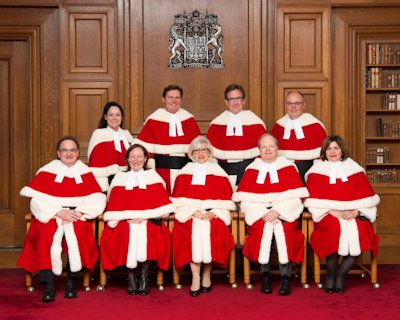Chippewa of the Thames First Nation Challenge of Line 9 Going to Supreme Court
Chippewa of the Thames First Nation Challenge of Line 9 Going to Supreme Court

Chippewa of the Thames First Nation (traditional name Deshkaan Ziibing) near London, ON, got news this morning their case against Enbridge and the National Energy Board will be heard by the Supreme Court of Canada.
At issue is a controversial 40 year old pipeline, Enbridge Line 9, which runs from Aamjiwnaang / Sarnia to Tiotiake / Montreal. In 2012, Enbridge proposed to reverse the pipeline flow, which had been taking imported oils from Montreal to southern Ontario, and instead pump tar sands bitumen and other crude oils from west to east.
The pipeline was approved by the National Energy Board in 2014 and began flowing in late 2015. The First Nation claims the Crown did not fulfil its obligations to consult and accommodate them on this project that affects Indigenous Treaty rights, like those enshrined in the Royal Proclamation and Treaty of Niagara.
Chief of the Chippewas of the Thames, Leslee White-Eye welcomed the decision, saying, “Our community is pleased by this forward step but the path before us is still long as we continue to seek protection of our Aboriginal and Treaty rights. We need to bring home that we are not acting alone in the action, nor that it is for our sole benefit but an attempt to seek protection of our water – these energy developments are one of many across the nation impacting our rights”.
Since it began flowing, Line 9 has been the the subject of two separate high profile direct actions in which protesters shut-downs the pipeline manually in December 2015. It was also shut down anonymously twice in January.
The Inuit community of Clyde River also learned today that the Supreme Court would hear their case against seismic testing for Arctic Ocean oil drilling off the coast of Baffin Island. The continual seismic testing harms whales, seals, other marine life locals depend on.
The CBC published stories today covering the Chippewa of the Thames case and Clyde River case in further depth.
Myeengun Henry of Chippewa of the Thames estimates their case may cost half a million dollars. A crowdfunding campaign has slowly been raising money.

